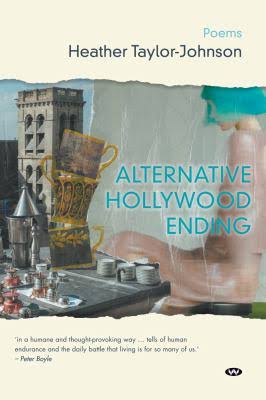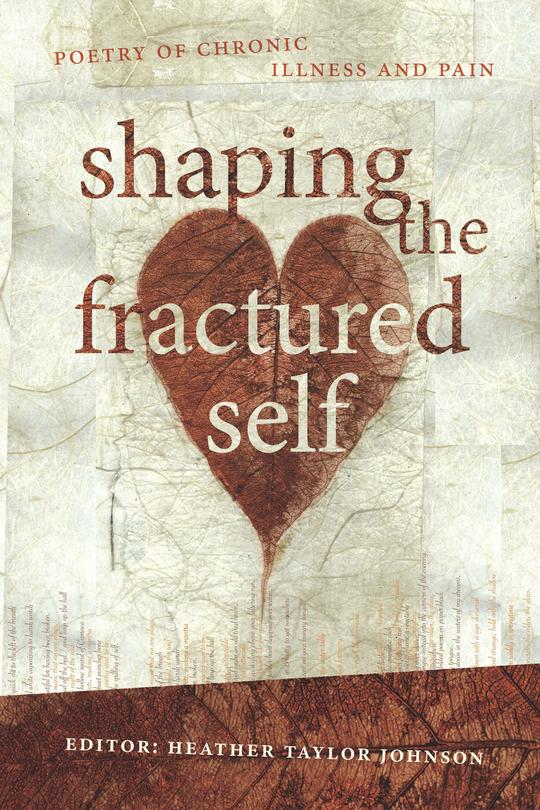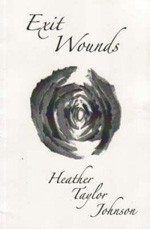Poetry

In November 2016, unable to focus on much else outside of her own disbelief and anger with the US presidential election, American-Australian Heather Taylor-Johnson began writing poems in response to outrageous and offensive quotes by the incoming POTUS, and found it a healthy way to settle back into the world around her. With sexism, racism and climate-change denial playing heavily into the far-right zeitgeist of our times, this book – six years on – is still fighting back. But it’s true things are better now / It’s true that things are the same. Ironic, playful, lamenting, Alternative Hollywood Ending melds the political with the domesticated, and the public with the poet’s invisibly disabled body-as-temple: chaos the beauty of our wild lives.
“Vivid and deftly lyrical, this poetry maps electricities between bodies and the urgent, astonishing dangers of our present moment. Sun shadows are harvested from moments of daily life, popular culture layered in with a polaroid-like vividness; space judiciously left for us to insert ourselves. The questions that burst through and out, jostling to the top of our consciousness, determine us to ‘Take these two eyes in their endless business and place them above their knowing mouth’. Alternative Hollywood Ending is a sustained note held against the noisy chords of living as a woman now; a tough memo, a truth-telling, a book that urges our punkish cores to wear your love as a cloak, a skin of your nerves; keep going. Get started.” – Melinda Bufton
“Alternative Hollywood Ending is a book of witness: heartfelt, keen and unfaltering. Heather Taylor-Johnson’s poems are intrepid and spirited in their exposition of illness, trauma, memory and love.” – Michelle Cahill
“’Tells of human endurance, and the daily battle that living is for so many of us, in a humane and thought-provoking way.” – Peter Boyle
Top of Form
Click here to hear Heather talk to Nicky Page on Radio Adelaide about Alternative Hollywood Ending

Rhymes with Hyenas Heather Taylor Johnson
Imagine if six famous protagonists transcended chronological and geographical barriers to come together through a poetry group in Adelaide. Rhymes with Hyenas is an inventive narrative of emails and poetry that gives a female voice to characters originally written by men. They are Ursula from DH Lawrence’s Women in Love, Caddy from Faulkner’s The Sound and the Fury, Melanie from Coetzee’s Disgrace, Delores from Nabokov’s Lolita, Katherina from Shakespeare’s Taming of the Shrew, and Lilith from Hebrew mythology. In a poignant ode to literature and Adelaide, these women are whole, complex characters, sometimes up to their breasts in mothering, sometimes homesick for exiled lands. They are lecturers, dog owners, art makers and carers who deal with illness, infertility, addiction and abuse. Their stories, initially limited by the masterpieces that spawned them, continue on: they are not a closed book. In a vibrant commentary on literary patriarchy and the patriarchy beyond, this book considers the place of writing, critiquing, reading, performing and publishing poetry in a woman’s space.
‘Every poet knows what a ‘work in progress’ is. Every woman knows what a work in progress her life is. Heather Taylor Johnson eloquently weaves these two strands in this fascinating book.’ —Susan Hawthorne
‘Taylor Johnson has written the female characters out of their isolation, as written by men, to explore how solidarity can facilitate personal agency and autonomy.’ —Clare Gaskin
‘A captivating experiment with genre and voice, and a deeply thoughtful and empathetic book.’ —Melinda Smith
Click here to hear Heather talk about the book with Ella Jeffery at Avid Reader.

Shaping the Fractured Self: Poetry of chronic illness and pain. Edited by Heather Taylor Johnson
Winner of the 2017 Mascara Avant-garde Award for Best Anthology.
“Of course not all great art has its genesis in pain, and not all pain – not even a fraction – leads to the partial consolations of art. But if lancing an abscess is the surest way to healing, can poetry offer that same cleansing of emotional wounds?” –Peter Goldsworthy
With work by Fiona Wright, Stuart Barnes, Peter Boyle, Andy Jackson, and more, Shaping the Fractured Self showcases twenty-eight of Australia’s finest poets who happen to live with chronic illness and pain. Each have contributed short autobiographical essays to accompany their three poems, capturing the body in trauma in its many and varied moods. Because those who live with chronic illness and pain experience shifts in their relationship to it on a yearly, monthly or daily basis, so do the words they use to describe it. Shaping the Fractured Self gives voice to sufferers, carers, medical practitioners and researchers, building understanding in a community of caring. ‘…my wish is that doctors might be trained to bring more awareness, more empathy, more professional self control and more understanding to their important roles. If every medical student was given a copy of this book to read and discuss and re-read, we might, we just might, have people reporting different stories of their encounters with the medical profession.’ – Kevin Brophy
Click here to read Kevin Brophy’s review of it in The Conversation.

‘Meanwhile, the Oak is more impressive with every reading. We’re drawn into an ecology where people really do give a damn about each other and the world their friends, lovers, children and animals inhabit….How clever, how good, her writing is. Taylor Johnson’s poems expand our knowledge while they increase our delight. Read this book!’ – Michael Sharkey, author of Another Fine Morning in Paradise * ‘A gifted and gifting collection. Open, generous and accessible poems of love, illness, survival, and so much more. Visceral and redemptive, witty, tantalising, alive.’ – David Brooks, author of Open House
Meanwhile, the Oak (Five Islands Press, 2016) SAMPLE POEM
My dog Tom
There goes that wind, my space snagging on an updraft then flying across the yard. Over the fence lives a small boy whose father calls him a girl. A treble clef rises from his cry and my space joins it, spinning our notes into a mess of confusion jazz being improvised on out of tune horns. Our music hits a straight path and heads for the tree, where baby chicks kick their ways out of eggs such an ache for sunlight, such tiny fissures. My space builds a layer of warmth around those eggs – mother-vibes I cannot help but send out with the wind. Clouds come like a few fish turning into a school, then sirens and the low-pitch howl of my dog Tom. This is where his space begins: in the gut, where first the wind is felt. His flies further than mine heavily past the railway line and over Sussex Street where I know the scent of rain is strongest – in the park, where father birds sit on radio wires, vibrating to music being transmitted to a house where maybe a fire burns, where maybe another dog is feeling Tom’s space, is sniffing the air, is taking it into his own.

‘Family, memory, cultural mores and diasporic musings form the fascinating content of these poems, but it is their speaker’s levity insight and generosity of spirit that makes them a pleasure to read. I recommend this book to all readers who have felt, as Taylor Johnson has, that ‘no earth has ever been theirs to claim.’ – Ali Alizadeh, author of Ashes in the Air * ‘Heather Taylor Johnson writes about the things that matter and some things that didn’t seem to matter before. Her poems are digressive, surprising, vital, and will find readers beyond poetry’s forts and ghettos.’ – Aiden Coleman, author of Asymmetry
Thirsting for Lemonade (IP, 2013) SAMPLE POEM
Why Painting is Like Geometry
At university in Music Theory I learned about mathematics. Between binge drinking and finding my soul I discovered the inevitable: inspiration doesn’t become creation without fine tuning. I bought a Dave Brubeck CD and listened while I studied while I strove to write poems without counting syllables while I ate two minute noodles and drank six packs of beer while I tried to sleep to my roommate fucking in time to beats of jazzed up fives a coed from the second floor. I memorised melodies and had to do equations and questioned my vocation as would-be poet because Take Five wasn’t a stroll down an alley of garbage cans and scurvy cats, the woman in red a hobo whistling, a man in a suit with an alto sax; it was perfect numbers from fractions with order and reason and from it came rhythm and song. I wanted to be that woman in red, that very sax because I wanted to believe that magic lies within the muse and the artist and the sound and the word and the pen. I wanted to heed the creed of art for art’s sake. I was eighteen. I only just passed Music Theory then ascended to drinking bourbon and cokes and lost my virginity at a party. That boy dumped me in two week’s time while the bourbon took turns with cheap red wine and I wrote poems on life-til-now while others took notes in Art 101 on why painting is like geometry.

‘Taylor Johnson sings praises of the natural world and domesticity. Love poems abound…so that every page speaks of the ‘things or bodies need’ – love, food, acceptance, shelter and belonging.’ – Libby Hart, author of Wild * ‘An open conversation with family and friends, and with the things of this world, which traverses the stresses, the niggles and the sadnesses, but mostly the complexities of celebrating the everydayness, the ongoingness of living.’ – Jill Jones, author of The Beautiful Anxiety
Letters to my Lover from a Small Mountain Town (IP, 2012) SAMPLE POEM
Tree Line
Past the point of tree growth, where the sky opens to the wind, I open to you. I am not surprised- this was always our journey. We take each breath as if our last, the higher we get the dizzier the exhale, twisting our ankles and falling on the palms of our rubble-burnt hands. Mostly we indulge in water and views: things our bodies need. So now we are here – tree line. Where I can look at you freely without analysing my love. Where I can walk toward you in this gaping space sturdy bare feet atop the rock and snow. Where I can say to you this is not a place where trees die; it is where they dream of living.

‘These poems on birth, motherhood, love and death have intimacy and raw warmth – and a fresh wonder at inner and outer worlds.’ – Eva Hornung, author of Dog Boy * ‘Heather Taylor Johnson writes in an immediately attractive way of the small things that are big.’ – Tom Shapcott, author of Chekhov’s Mongoose
Exit Wounds (Picaro Press, 2007) SAMPLE POEM
Feeling Footy
Gumtree combusts in the heater and I’m as cozy as I’ve ever been sweat pants, ugg boots, maternity bra and that shirt I got from the brewery in Utah where we drank Polygamist Porter. It was a year post-wedding, a year pre-children. He’s drinking a lager now which he brewed with cardamom pods then poured into that fine glass mug we bought from Heather Mountain Lodge —haven from the rain and he’s wearing his club scarf of Bulldogs Bulldogs through and through, and I realise I’m getting into footy. Our tacker on the cushions with the stuffing pushing out yells Oh! He got it! Well done! Go the Blues or the Bombers or the Power or the Dockers whichever pops into his enormous little mind and our baby’s on a rug with toys dangling down toward his enormous little astonished eyes and I laugh at the commentators, call some player by his name, get nervous before a set shot. I’m thinking warmth, the gumtree combusting, the boys, warmth the hanging photos in front of me the two of us naked shadows in the sand the Coorong over Easter the three of us shadows in the pebbles by the lake at the foot of the glacier in Montana and the sun on the backs of our necks, warmth. The next one will show four shadows touching destination not yet known. I never watched football in America. Never watched a Super Bowl or had a favourite team. Never knew the uniform colours or mascots by name but then I never knew the smell of kindling from newspaper and a dead gumtree branch. I’d never had rivers flowing through my breasts and I’d never shared a bed with a dedicated sports fan. I never imagined this bustle contained in a small living room could be part of the build up to the Grand Final. And on that day, I wish for rain. The sound of it on our tin roof. The players sliding in thick, cold mud and losing grip on the slippery ball. So warm.
